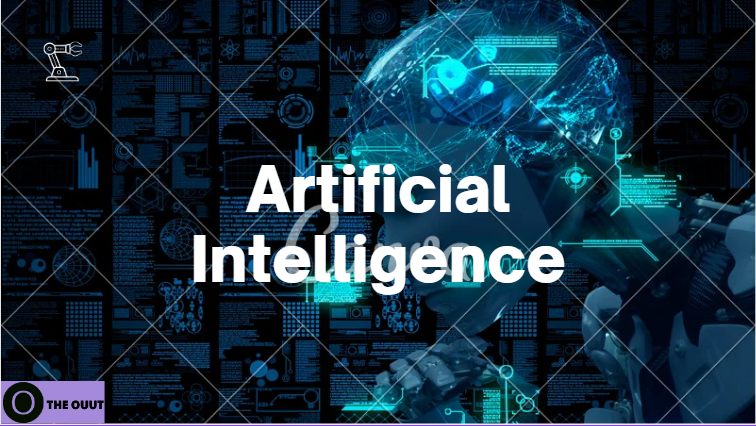Propelling AI in Africa (Research and Development)

AI, like previous technologies, is revolutionizing our world, society, and industry. Because of the concept of machine learning, such breakthroughs are now conceivable. As a result of this advancement, there is a great deal of diversity in the use of AI, and as a result, sectors such as medicine, agriculture, and meteorology have all benefited.
More developed Western economies, such as the United States of America, Europe, and the Asian Tigers, are at the forefront of AI policy research and implementation. Africa has only recently begun its journey toward harnessing AI, and it is well-positioned to build a unified strategic approach to AI use at the national and regional levels.
The African continent intends to use the digital transformation process to achieve long-term growth and development. One of the most important aspects of this digitization push is the use of AI technology. However, several African countries have yet to establish a clear strategic and practical framework for the use and governance of AI. Appropriate implementation of artificial intelligence (AI) in business has the potential to quadruple economies.
According to Accenture’s Artificial Intelligence is the Future of Growth research, AI has the potential to add one percentage point to South Africa’s GDP rate by 2035. According to the report, the effective deployment of modern technology can be an essential part of addressing several difficulties that are degrading the country’s global competitiveness, such as low skill levels and diminishing productivity.
Developments in algorithms, access to big data, computational power, and overall, mass adoption have sparked the recent heat in the AI discussion globally. While Africa cannot sleep on this, the region must painstakingly set up institutions and infrastructures to pursue this development.
Getting it Right
For Africa to effectively manage the transition to AI, it must ensure the successful integration of human intelligence with artificial intelligence, as well as ensure that we appropriately reskill employees whose roles are directly impacted by AI technology.
AI will add $15.7 trillion to global GDP by 2030, with $6.6 trillion from higher productivity and $9.1 trillion from consumption effects. Furthermore, augmentation, which enables humans and artificial intelligence to collaborate to improve performance, “will generate $2.9 trillion in business value and 6.2 billion hours of worker productivity globally.” Africa should not and must not lose this opportunity.
However, the continent confronts some known hurdles in developing AI, such as a lack of investment, a scarcity of specialized expertise, and a lack of access to the most recent global research. These barriers are gradually being removed, owing to African innovation and investments by international corporations such as IBM Research, Google, Microsoft, and Amazon, which have all launched AI labs in Africa.
A lack of flexible and dynamic regulatory mechanisms also inhibits the establishment of a digital environment that favours AI technology, especially when tech leaders seek to scale across borders. Creating a respectable research and development (R&D) sector is a critical step toward implementing AI-powered solutions in Africa. Fortunately, South Africa remains a power in research and development among its African contemporaries.
Research and Development for AI
R&D can assist in the establishment of an AI ecosystem, lowering development costs, assisting in the development of AI applications adapted to local needs, and reducing reliance on foreign enterprises. In addition to building apps at a low cost and ensuring their scale deployment, the African AI ecosystem might present itself as an appealing partner for global digital giants looking to join the African market.
At the moment, it can be considered that South Africa’s government recognizes the relevance of AI and has taken initiatives to foster its growth. The Department of Science and Innovation founded the Centre for Artificial Intelligence Research, which conducts research on numerous AI-related themes and offers funding for AI initiatives. Furthermore, the Department of Trade, Industry, and Competition has developed the AI for Industrial Innovation Program, which intends to encourage the development and implementation of artificial intelligence in the industrial sector.
In addition, firms such as NVIDIA, IBM, Amazon, The Innovation Hub, and others are leading the charge on AI-related projects in the country.
Again, academic institutions reflect South Africa’s R&D agenda for AI development. AI and machine learning can be studied at universities such as the University of Pretoria, the University of Cape Town, and the University of the Witwatersrand, among others. Wits University was granted $3 million by the Department of Science and Innovation (DSI) last year to create the South African Quantum Technologies Initiative (SA QuTI) to build the local quantum technology economy and promote a research environment in quantum computing technologies.
In 2019, Kenya’s government formed an AI and blockchain taskforce consisting of representatives from local research institutions, technology companies, and businesses. It published an insightful report on how to exploit opportunities in blockchain and AI for added efficiency. Research and development must be effective for African governments to propel AI.
